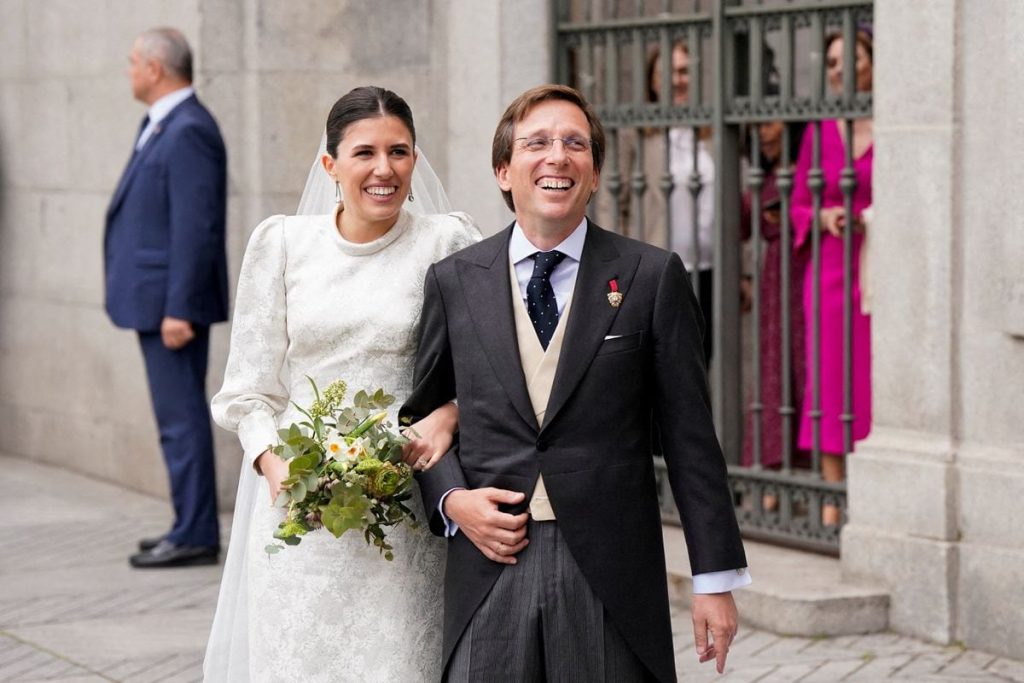The author begins by describing their morning walk, reminiscing about their father-in-law who used to stroll among olive trees with a transistor radio in hand. They note that this method of listening to the radio, without headphones, allows for a healthier and more connected experience with the sounds of nature. They mention listening to society chronicles by Martín Bianchi, particularly following the preparations for a highly anticipated wedding. The author is amused by the details shared by the radio host, including a peculiar mention of the “drying area” in the bathroom on the couple’s wedding registry. Despite missing some crucial details while listening to the radio live, the author appreciates the unique insights provided by Bianchi, especially his commentary on the wedding festivities and the political undertones present in the event.
The author reflects on the wedding coverage and Bianchi’s commentary on the choice of venue, San Francisco de Borja church, known for its associations with Franco-era symbols and events. Bianchi finds the church’s history controversial, overshadowing lighter moments like Esperanza Aguirre’s headpiece or a comical mishap involving her husband during the ceremony. Despite these humorous elements, the author underscores the political messaging conveyed through the wedding, pointing out the subtle nods to the current political climate in Spain. The author juxtaposes Almeida’s initial charm with his party’s more rigid stance, highlighting the tension between personal charisma and political allegiance.
Referencing past high-profile weddings in Spain, including the daughter of former Prime Minister Aznar, the author draws parallels between opulent ceremonies and subsequent legal scandals involving the attendees. In contrast, the wedding of Madrid’s mayor represents a delicate moment for the city, characterized by increasing ideological divisions and social fractures. The author criticizes the exclusive guest list, comprising mainly right-wing figures, aristocrats, and individuals with significant economic influence. Such a display of privilege and elitism, held at a prestigious venue with historical significance, reveals underlying tensions within Spanish society, exacerbated by political polarization and class divisions.
The author questions the selective inclusion of guests, notably excluding members of the Royal Family not aligned with the ruling party’s vision of monarchy. The ostentatious display of wealth and power at the wedding reception, combined with the exclusion of certain individuals, reflects a broader trend of elitism and exclusion in Spanish society. By highlighting the presence of key political figures and influential personalities, the author suggests a concerted effort to consolidate power and assert dominance in a changing political landscape. The author’s observations delve into the intricate dynamics of privilege, politics, and identity, shaping public perceptions of authority and social hierarchy in contemporary Spain.
In conclusion, the author raises concerns about the implications of such events on societal cohesion and political discourse, emphasizing the need for inclusivity and diversity in public representation. By critiquing the wedding festivities through a lens of social critique and political analysis, the author unveils underlying tensions and power dynamics at play in Spanish society. The juxtaposition of traditional values with contemporary political realities underscores the complexities of identity, class, and ideology shaping public narratives and collective identities. Through a nuanced exploration of a high-profile event, the author prompts readers to reflect on broader issues of representation, privilege, and power in a rapidly changing world.


